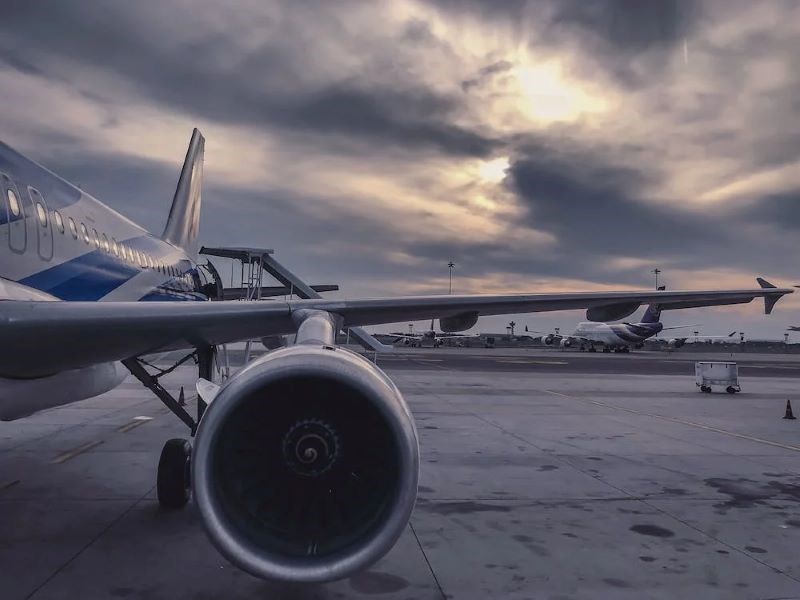Efficient aviation supply chain management is paramount for the seamless operation of airlines, airports, manufacturers and suppliers. As global air travel demands continue to soar, adhering to best practices is essential for both efficiency and cost-effectiveness.
In this article, we explore best practices in aviation supply chain management, analysing current trends and delving into the pivotal role we play in the process.
The Importance of Supply Chain Management in the Aviation Industry
Supply chain management holds immense importance in the aviation industry for a number of reasons, including:
- Complexity of Operations: Aviation operations involve various interconnected processes, including manufacturing, logistics, maintenance and distribution. Efficient supply chain management ensures seamless coordination, preventing delays and disruptions.
- Cost Control : The aviation industry operates on tight profit margins and effective supply chain management is crucial for controlling costs. Optimising procurement, inventory management and transportation helps to reduce expenses and enhance overall profitability.
- Customer Satisfaction : Timely delivery of aircraft components, materials and spare parts is essential for maintaining customer satisfaction and loyalty. Effective supply chain management ensures prompt and efficient fulfillment of customer demands, thereby enhancing the reputation of aviation companies.
- Safety and Compliance : Adherence to stringent safety regulations is paramount in aviation. Supply chain management helps to ensure all components, parts and materials used in aircraft construction and maintenance meet regulatory standards, maintaining safety and operational integrity.
Current Trends in Aviation Supply Chain Management
The Covid-19 pandemic significantly impacted the aerospace industry, disrupting its supply chain and presenting numerous challenges for businesses. Current trends are characterised by:
- A Focus on Efficiency and Cost Optimisation: There is an increased emphasis in enhancing efficiency, optimising costs and improving adaptability in response to changing market dynamics.
- Sustainability : With consumers increasingly conscious of their carbon footprint, sustainability has emerged as a critical trend in the aviation industry. This includes optimising transportation routes, partnering with sustainable suppliers and investing in eco-friendly packing materials.
Best Practices in Aviation Supply Chain Management
To navigate the evolving landscape of aviation supply chain management effectively, businesses must adopt the following best practices:
- Implement Digital Technologies : Digital technologies play a pivotal role in ensuring the efficiency and success of aviation supply chains. These innovations, such as cloud computing, artificial intelligence (AI), and the Internet of Things (IoT), serve as essential tools for automating and enhancing various supply chain processes.
Through the strategic implementation of these technologies, managers can access valuable data insights, improve responsiveness and elevate visibility.
- Adopt Sustainable Practices : Able to reduce the environmental and social impact of supply chain operations, sustainable practices can ensure managers comply with regulations and standards, while improving their reputation.
- Ensure Compliance : The aviation industry is highly regulated, with strict standards and requirements for safety and security. Supply chain managers must stay informed about regulatory changes and ensure compliance across all stages of the supply chain. This includes proper documentation, quality control measures and adherence to industry standards.
- Implement Risk Management Strategies : Supply chain disruptions can cause severe delays. Managers must proactively identify any potential risks and develop robust mitigation strategies to minimise their impact. This might involve diversifying suppliers, maintaining buffer stocks and establishing contingency plans for emergency situations.
At Aerospheres, we’re proud to implement Just In Time (JIT) stock procedures. When you choose to partner with us, we’ll determine a monthly quantity of stock and hold it for you. As soon as the minimum level is reached at your end, you can quickly pull next month's worth of materials.
To find out more about this service, please get in touch with our team.
A Critical Role in the Supply Chain
At Aerospheres, we never underestimate the critical role we play in the aviation supply chain. Ensuring there is a continuous supply of stock for our customers, our team of experts work closely with you to plan and execute the efficient distribution of core materials.
We’ll ensure you have stock onsite to meet two to three months usage, with weekly or monthly replenishment schedules. We also ensure that there is an additional buffer at our local facilities, removing the need for our customers to stock large amounts of materials, or embark on the costly task of managing Dangerous Goods (DG) or Hazardous materials and temperature-controlled products.
To find out more about the services we offer, please contact us today. One of our experienced, approachable advisors will be more than happy to help.





Comments
Efficient supply chain management is the backbone of aviation operations, ensuring seamless coordination, cost control, and customer satisfaction. At Aerospheres, were committed to playing our critical role by providing timely and reliable supply solutions tailored to your needs. Contact us to learn more about how we can support your business.
Milan